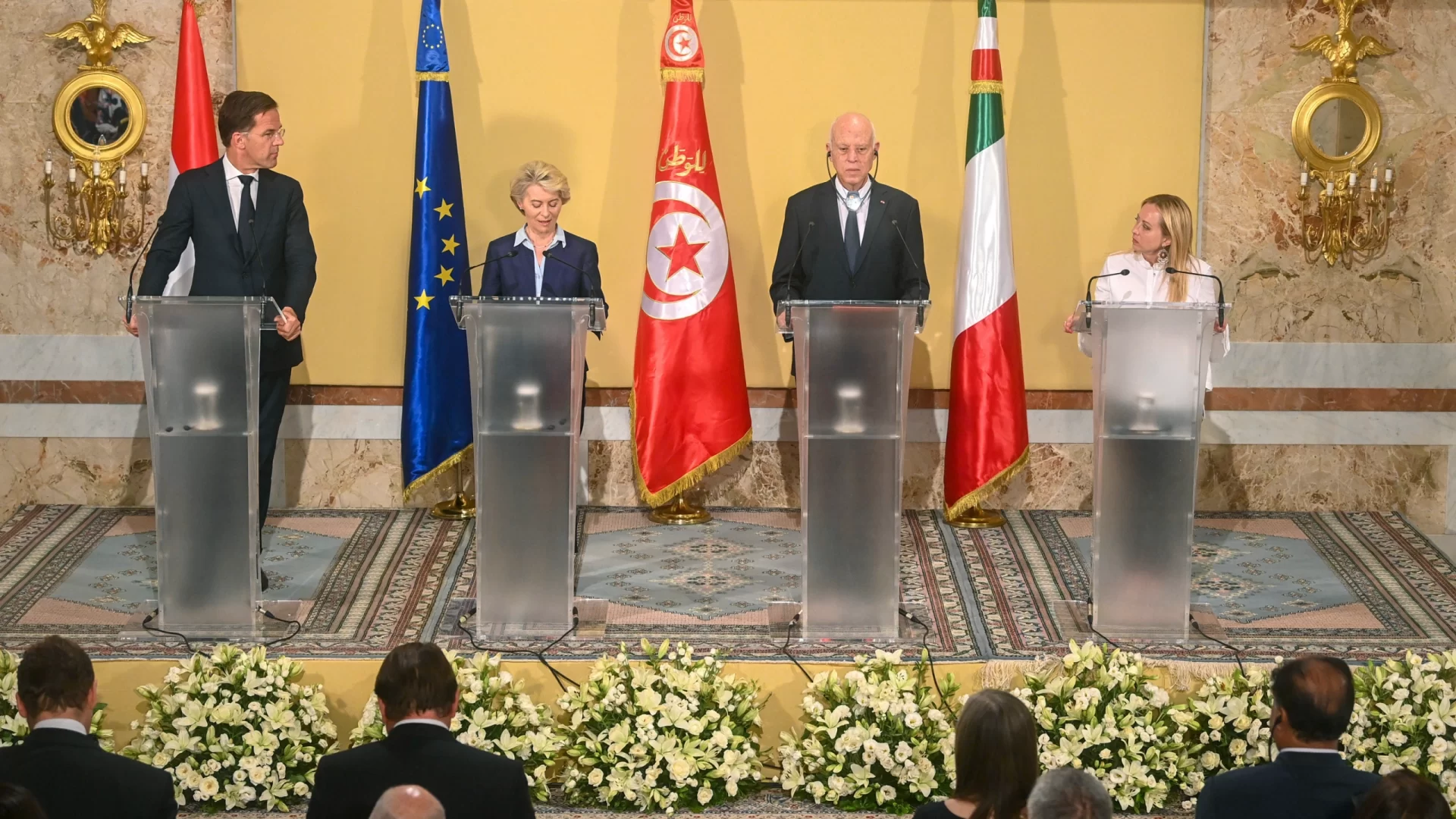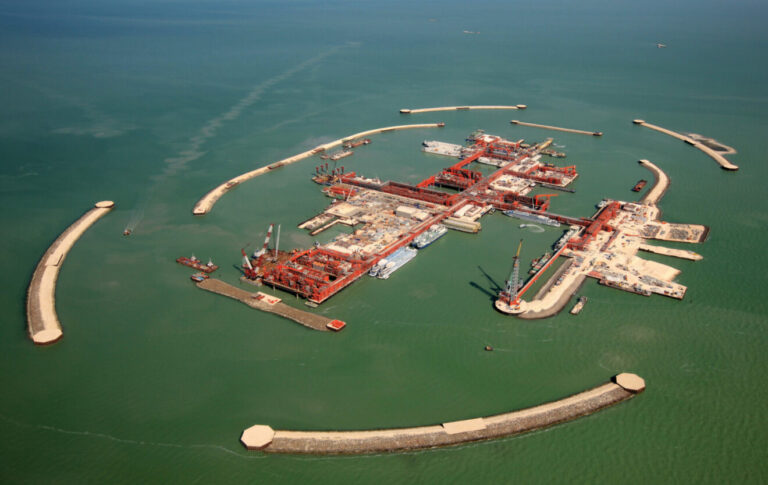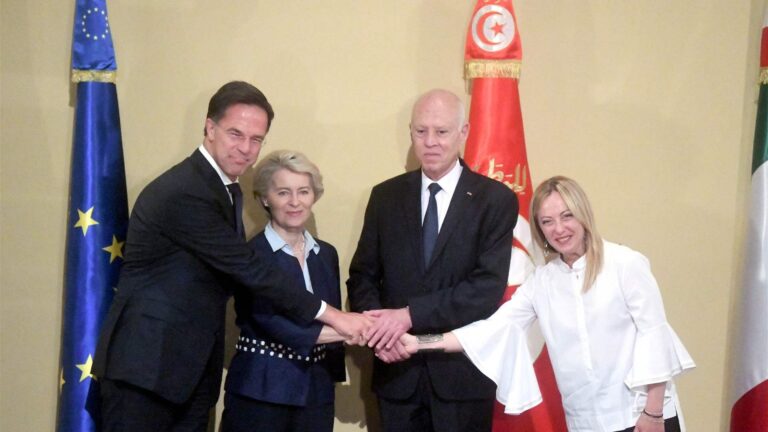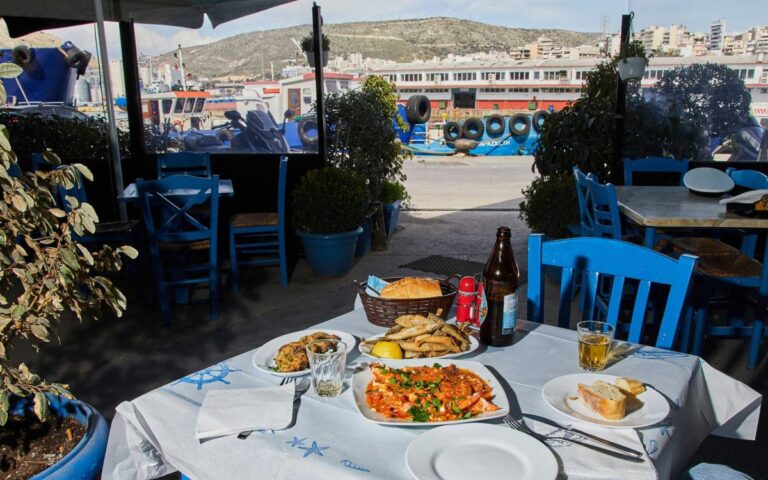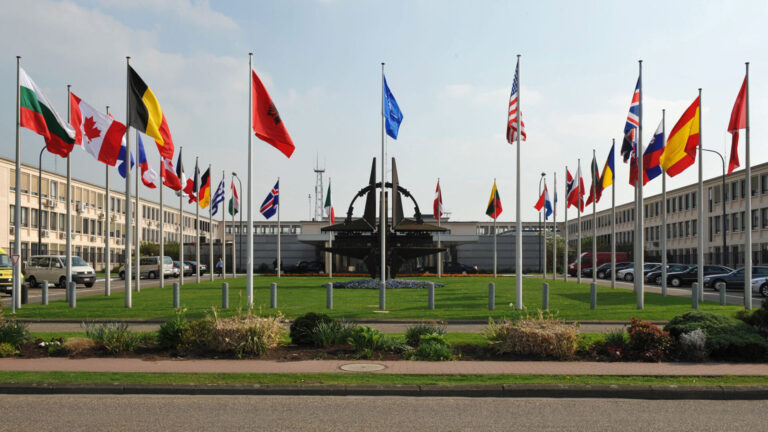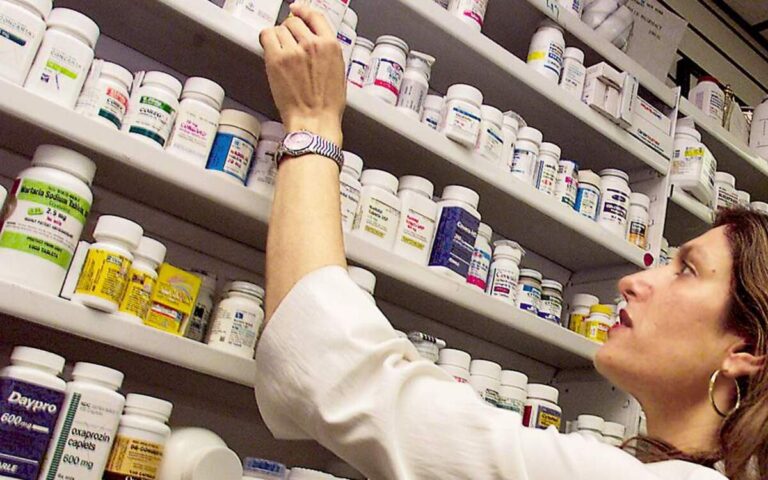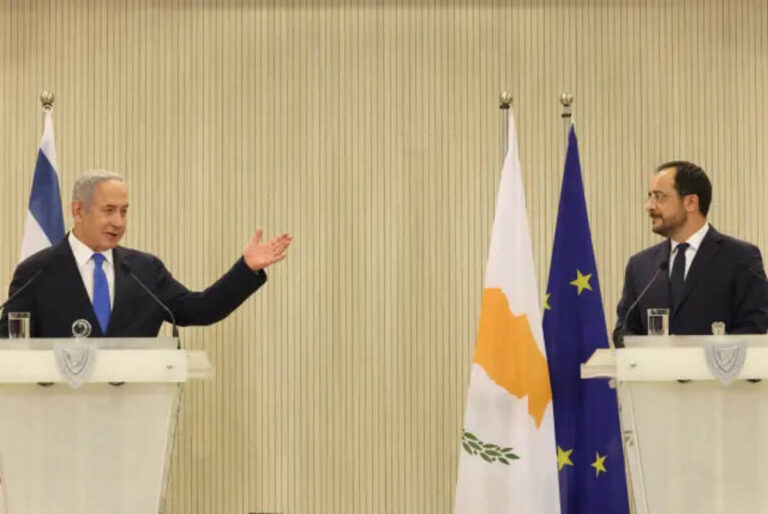Good evening,
Team Europe is back in Tunis. I am glad to be here with Prime Minister Giorgia Meloni and Prime Minister Mark Rutte. We were here together on 11 June, to offer a new partnership with Tunisia. And today, just over a month later, we deliver. Earlier, we witnessed the signing of the Memorandum of Understanding on a strategic and comprehensive partnership. Our teams have worked very hard – and I want to thank them – to deliver rapidly on a strong package. This is an investment in our shared prosperity, stability and in future generations. The reasons for it are compelling. Tunisia and the European Union are bound by a shared history and geography, and we share strategic interests. In times of geopolitical uncertainties, it is important to deepen cooperation with our strategic partners. So we agreed with Tunisia on a comprehensive package of measures that we will now put into practice swiftly.
As you know, it is built on five pillars. The first one is about people-to-people connections. Tunisia has a young and energetic population. And it is in our mutual interest to bring our people together. So we are creating opportunities for young people, in particular. We will be opening a Tunisia window in the Erasmus+ programme, worth EUR 10 million, to boost the student exchange. We will also get started on ‘Talent Partnerships’ to give Tunisia’s youth opportunities to study, work or train in the European Union. So they will gain expertise in the European Union and they will acquire new skills that will be important for Tunisia’s economy back home. We will also work together to modernise schools. For instance, we are supporting 80 schools to get ready for the digital and green transition, with a EUR 65 million contribution from Team Europe.
The second pillar is economic development. We will partner to build a robust Tunisian economy that is more resilient to shocks and conducive to growth. We remain ready to support Tunisia by mobilising macro-financial assistance as soon as the necessary conditions are met. And as bridging step, we are ready to provide immediate budget support.
The third pillar is in investment and trade. The European Union is already the largest foreign investor and trade partner for Tunisia. And we are willing to do much more. We will work together to improve the business environment to attract more private investments. For that, we are planning together to organise an investment forum this autumn, bringing together investors and international financial institutions. We will also explore the possibility to conclude a Comprehensive Air Transport Agreement. This will benefit the tourism sector and of course will improve the connectivity, which is so important for our people and for our businesses. An important focus on our investments will be the digital sector. We already have good projects in the pipeline, like the Medusa submarine cable, which will connect Tunisia with Europe. It will link 11 countries around the Mediterranean, from 2025 on, and EUR 150 million will flow into this important project. Another priority sector will be water management and sustainable agriculture. This is essential to adapt to a drier climate and to strengthen the resilience of the food system. We will pool expertise, share technologies and generate investments in this critical sector.
This brings me to my fourth point. Tunisia has a huge potential for renewables. This is well known. It needs to develop this sector. And we are reliable suppliers of technology that is necessary, and we know that Europe needs reliable supply of clean energy. So as we are decarbonising our economies, and for that, we need clean energy sources – like for example green hydrogen – and electricity produced from renewables. So it is a win-win situation. It is in both our shared interest. We are already working on several projects, like ELMED, the undersea cable linking Tunisia to Italy, bringing electricity to Europe. Here, we are investing over EUR 300 million in this project. And this is just the beginning. We will conclude with Tunisia a strategic partnership on energy to accelerate the energy transition and create good jobs locally. The aim is to improve security of supply and to provide both our people and our companies clean energy at affordable prices.
The fifth pillar is migration, where we need an effective cooperation, more than ever. The tragic shipwreck a few weeks ago, in which many people lost their lives, was yet another call for action. We need to crack down on criminal networks of smugglers and traffickers. They are exploiting human despair, and we have to break their reckless business model. So we will work with Tunisia on an Anti-Smuggling Operational Partnership. We will also increase our coordination on search and rescue operations. And we agreed that we will cooperate on border management, anti-smuggling, return and addressing root causes, in full respect of the international law. For this, we will make available more than EUR 100 million of EU funding. Equally important is our work to facilitate legal regular migration. This includes the Talent Partnerships I mentioned at the beginning. And with this, I am back where I started – the importance of people-to-people connections.
In conclusion, we have a good package. Now it is time to implement it, to deliver for our people on both sides of the Mediterranean.
Source: Europa

